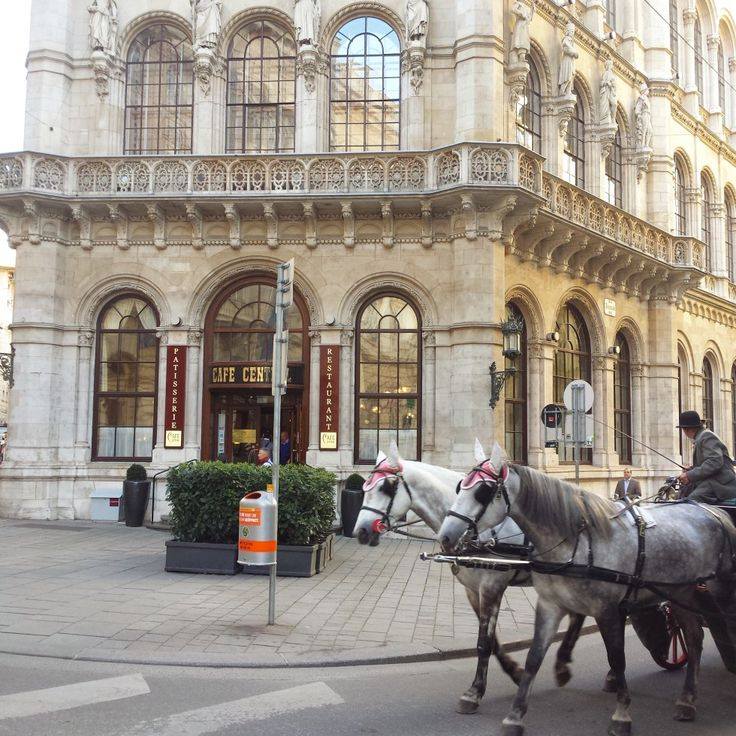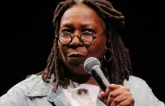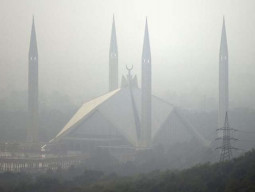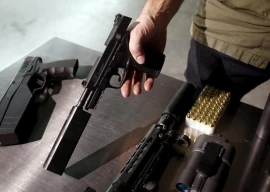
Viennese coffee houses are not only famous for their aromatic ambience but also for the intellectual and artistic air. It is here that many significant literary, cultural and philosophical events took place and, in some cases, some important movements were thought of and launched. ‘Café Central’ is one of those centres that have been witnessing the intellectual vicissitude of this city. As a token of gratitude to the literary community, a metal statue of Viennese writer Peter Altenberg in sitting posture has been put right at the place he used to sit regularly.
On the walls of Pak Tea House too, in its present, renovated form, hang photographs of those senior and significant writers who have been frequent visitors to this literary hub. Yet, Tea House has an edge over the Café Central as the former has been the seat of Pakistan’s most important, vibrant, democratic and time-honoured literary organization; Halqa e Arbab e Zauq – established in 1939.
Name of Pak Tea House is inseparably coupled with Halq e Arbab e Zauq. But, it is in fact, Halqa e Arbab e Zauq that is inseparably linked to Pak Tea House. This apparently insignificant and incommodious restaurant is arguably the most important and widely known literary address in the country. It is not, to be sure, the only resort of writers and literati even in Lahore.
Back in the early 1980s when I with my fellow young writers started visiting this awe-inspiring place, Halqa was divided into three rivalling groups and none of them held its weekly session in Pak Tea House. These factions were stationed at Chinese Lunch Home, YMCA and Punjab University (Old Campus) cafeteria. But, interestingly, whenever there come the election times, Tea House would be the natural venue. After having been roamed about here and there for a while and having settled their organizational differences, Halqa’s split units used to recur back to Tea House.
Halqa, it seemed to have been a general consensus among its members, belonged to Pak Tea House. Tea House, however, had – beyond its relation to this organization – its own character. It was and still today it is a resort of writers – frequented by each and every – affiliated to Halqa or not, veteran or novice, with right-wing ideological leanings or a leftist. It is unimaginable of a writer who had ever been to Lahore and had not stepped in Pak Tea House. Specific places were almost fixed, if not formally reserved, for some of Halqa members, mostly senior writers who daily visited Pak Tea House.
One of them was Asrar Zaidi – a Delhi-born poet famous for his writing a weekly literary column wherein he used to report, among other things, almost the entire proceeding of the Halqa’s recent session. The long sofa along with the wall from the kitchen door to the upstairs belonged to him and his friends. On the left side of the entrance was the counter of proprietor-cum-manager of the restaurant. Next, a table with four chairs was occupied by renowned fiction writer Intezar Hussain flanked by his coterie comprising Zahid Dar, Kishwar Naheed, Ahmad Mushtaq and some others.
The sofa on the right side near the entrance with a glass-window looking outside was a regular place of ‘leftest-political’ writers like Saleem Shahid, Yunas Adeeb, Javed Shaheen, Altaf Ahmad Qureshi etc. Right in the middle, at a table with two chairs, you would see a lone traveller – a fiction writer, critic, translator, editor of a literary magazine and a bureaucrat; Anis Nagi making tea for himself or smoking on a pipe - occasionally joined by some young, submissive writer. The budding writers used to occupy their own tables in case they appeared en bloc otherwise they would join senior writers of their liking or those who would allow them to do so.
Present-day Pak Tea House is passing through, after having been revamped, its fourth phase. There have been a lot of changes – for the betterment albeit some old stagers complain about the alteration of seating arrangement that, in their opinion, has disturbed and diminished the traditional look and aura of Pak Tea House. Still, it is comforting to think that this tiny building will be hopefully continuing to remain as Pak Tea House and might not be converted into a shop for tyres or so as it was once feared and planned by its former owners.
A place or a built environment sometimes acquires significance and meaningfulness far higher than its economic market value. Vienna, Paris and some other European urban centres have many such places with symbolic capital: Pakistan has only one. But, whereas, such literary and cultural hubs in Vienna and elsewhere in Europe are not only adored and tenderly care about, one does not forget to document their living history either.
On the relationship of coffee houses and literature in general as well as on literary and/or cultural significance of a single, specific coffee house one can find here a plenty of literature both of popular and scholarly nature. On the other hand, Pak Tea house, despite the mushrooming growth of universities in the country, has, one fears, failed to be spotted as the subject matter of any serious and scholarly exposition. If there were a place of Pak Tea house’s credential in Europe, one would have taken it for a doctorate in cultural and literary studies.
-
Waiting for Mrs Blaha in Café Central
- - -
Sipping a cup of coffee
in Café Central you drink
from the cup of tea in
Pak Tea House that
has since long been changed
unrecognizable
-
Torn apart by seven seas
the twain meet:
the intellectual air,
the sombre ambience,
faded faces of the frequenters
and lot more of the absurdities
but, to be sure, coffee and tea
have different tastes
and distinct aromas
yet you put
a lot of milk
in your coffee
and make it a queer mélange
-
Mrs Blaha is leaving
for Lahore
what she will do
if someday she waits for you
in Pak Tea House?
-
[Excerpt from 'A Dream Deferred' by Dr Aftab Husain]


1731550446-0/Polymarket-(1)1731550446-0-165x106.webp)

1729512368-0/liam-(8)1729512368-0-165x106.webp)












COMMENTS
Comments are moderated and generally will be posted if they are on-topic and not abusive.
For more information, please see our Comments FAQ